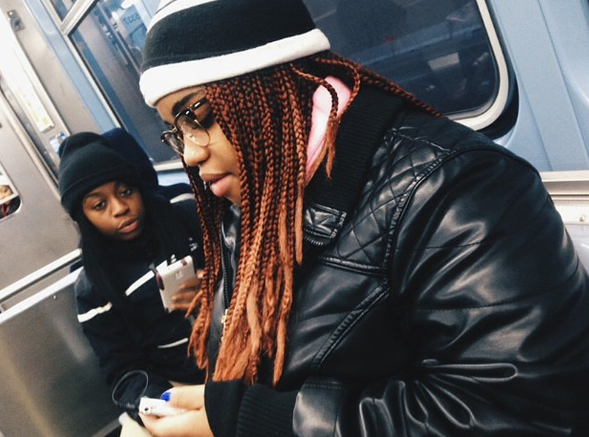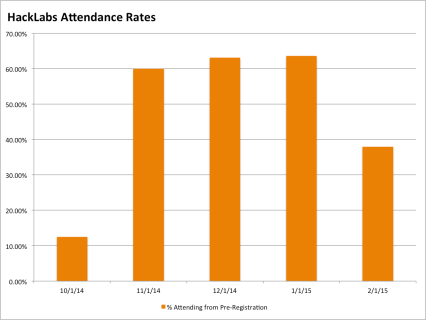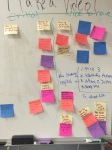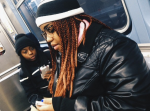A subset of the Transportation Moonshot working group has been continuing the work on building an app that enables teens to organize traveling to programs and events together. RideW/Me is currently being developed into a pilot that we hope to test with programs within the next year. We’ll be at the Chicago Education Innovation Pitch Fest on Wednesday evening to share this work with representatives from the U.S. Department of Education, Digital Youth Network, Sterling Partners, Global Silicon Valley, and more. The event is sold out, but please support us on social media and by trying out the current demo.
Ride Shares for Kids
Although we’ve seen (and used) rideshares like Uber and Lyft as options to move teens around the city, it’s always a grey area for usage by individuals under 18. Parents are starting to solve that problem with youth-focused ride share programs. While only currently serving California, HopSkipDrive in Southern California and Shuddle in Northern California let parents schedule pick-ups and drop-offs for their kids.
HopSkipDrive is slated to come to Chicago as part of their next expansion. We’re curious to see if this is an option that program providers might also utilize as an alternative to get teens to programs, school, and home safely and quickly.

Join us at DML 2015!
We’re excited to be hosting a workshop session at the Digital Media and Learning Conference
this year and invite you to join us! During the session, we’ll be brainstorming for new solutions to helping youth and program providers overcome transportation barriers and sharing ideas around current hacks that are happening in various cities. If you come to our 2-hour workshop on Saturday at 11 am, you can expect to:
- Get your creative juices flowing by playing Disruptus (and learn about a new ice breaker game while you’re at it!)
- Connect with others that face similar transportation challenges
- Brainstorm hacks and solutions in a World Café-inspired model
- Prototype one potential seed solution and share to the larger group
- Get access to our shared resources, where we’ll document everything created during the workshop
This session is guaranteed to be active and we’re hoping that everyone walks away with a new solution to physically connecting youth to programs that is achievable and potentially scalable. But we can’t do it without you – so put 11 am on your schedule today!

Ride W/ Me
Some members of the Hive Chicago Transportation Moonshot group took part in the CNT Urban Sustainability Apps Competition this past weekend. What resulted is was an amazing collaboration that jump started the Ride W/ Me app to enable ride sharing among youth in Chicago. See some of the work on the Ride W/ Me website or check out an article about the potential app on ChicagoInno.
Moving to Museum Campus

The Adler Planetarium and the Shedd Aquarium recently teamed up on a new program that involved high school students with current citizen science projects. The resulting HackLabs took place from October through February, with one HackLab per month and a culminating Hack-a-Thon on February 6th. This project was an opportunity for the Adler and Shedd’s teen programming teams to explore new options for youth to physically get to museum campus.
The Challenges
Both the Adler and the Shedd have experienced varying degrees of success with recruiting teens for free programming. We already know that access to museum campus is a challenge, particularly during the peak times that coincide with times students are out of school and can attend programs. Youth often rely on public transportation, which can be inconsistent as museum campus is only served by one CTA bus during the school year. Transit can also be dramatically impacted by the various events and street closures that happen in and around museum campus. Furthermore, winter weather makes a significant impact on youth reaching the Adler and Shedd as they lose the option to walk to museum campus from the Roosevelt station.
Aside from challenges related to physical accessibility, public transportation can be financially inaccessible. Programs tend to be excluded from reduced fares as they happen on the weekends, at night, and away from schools. Staff typically offers bus cards to offset the extra cost of coming to educational museum-based programs. Bus cards ordered from Ventra are $3 for a one-way trip, draining already limited resources away from supplies and equipment.
Testing a New Solution
HackLabs benefited from a Hive Chicago grant, which directly supported various transportation offerings for students to reach museum campus. All students were offered the option to get Ventra passes as reimbursements for attending, or parking coupons to park on campus for free. For four out of the five HackLabs, we organized bus transportation directly from neighborhoods on the South and West sides of Chicago.
We contracted out Sunrise Charter Services for use during HackLabs. The price of a bus for about five hours was between $230 and $250. For this first iteration of the program, buses were offered to specific groups. An adult organizer for the group was given contact information for the bus company and coordinated students at the pick up point.
Since the busing option was not in place for the first HackLab, we were able to see a direct impact on attendance with a comparison group. Approximately 28 youth pre-registered in for the first HackLab held at the Adler. The campus was free of events and being in October there were no issues with weather. However, only three students showed up with all three of those students being dropped off by parents.
In the following three HackLabs, the number of pre-registered students increased to at least 40 per session to accommodate higher drop off. However, actual attendance rates drastically increased with numbers averaging 24 students per day, resulting in higher overall percentages (Figure 1). For the Hack-a-thon, pre-registration reached 108 with 41 students attending – a higher attrition rate than the three previous workshops, but still lower than the first. These attendance increases occurred as weather conditions worsened and amidst more museum campus events.
Key Learnings & Next Steps
From this pilot, it seems that offering direct busing services to programs from neighborhoods does impact overall attendance. Financially, buses remain more expensive than ordering individual Ventra cards, unless the bus contains more than 40 students. However buses may be an attractive option for large programs, providing a more consistent, faster, and safer option for youth to reach museum campus.
Three key findings were observed as a direct result of providing bus transportation for groups:
- Comfort levels in traveling to an unfamiliar place is increased by going with a trusted adult and a group of peers;
- After youth have traveled to a new program location in a group, they are more comfortable in visiting on their own or only with friends; and
- Groups are more likely to travel to a program if transportation is provided by a trusted bus service.
One factor we would like to further explore is the impact of having organized groups using the buses versus having a general pick-up location open to all participants. It is very likely that attendance numbers increased because there were adults of influence making sure youth attended. Due to the condensed timeline of the program, we were unable to explore doing direct recruitment in neighborhoods and having a pre-determined pick up location for any youth to ride, similar to how the Chicago Botanic Garden runs the Science First program. We’d love to hear from you if you have pick-up locations for youth, what the financial impact is, and how it appears to affect overall attendance and attrition.
Get Moving! Youth-produced CTA101 videos
Today at Hive Chicago Buzz: Hive is Five, a small group of teens from Free Spirit Media, the Adler Planetarium, and staff from the Anti-Cruelty Society got together to make three prototype videos designed to help other teens use CTA. We started off brainstorming some of the common problems youth encounter when using CTA.
We quickly did four story lines around the most mentioned issues and about 30 minutes later, the teens were out the door to shoot quick videos that we’re hoping can be used as frameworks for a campaign. The intention was to get 15 second videos that could be shared on Instagram.
Although we didn’t get all four shot before the some of the team had to leave, we did get two live action videos and one storyboarded out.
WE NEED YOU!!
We need someone to continue this work! If you are in a Hive organization that works with teens and media production, or just have a passion for what we started, please consider continuing this seed solution. The teens we worked with were excited about the idea and think it is a great tool for new high schoolers that have to travel around the city to school.
Looking for resources to work on this project?
- Talk to us! You can find members of the Transportation Moonshot group at Hive meetups
- Find out more about our process today
- Consider submitting a proposal for a Hive grant to build your own CTA101 video campaign!

CTA Audio Project
Free Spirit Media and Real Chi Youth are producing audio podcasts of youth as they use CTA to travel around the city. Supported by collaborations with Hive Chicago and Illustrated Press, Real Chi Youth will highlight teens during their commutes to school and other programs. The audio pieces will jump start a hotline where teens can call in and leave their stories about using CTA.
Check out @realchiyouth on Instagram to follow along and learn more about this project.
#freecta4youth
Here’s a seed solution we can all get around immediately! Use #freecta4youth on social media sites to raise awareness about the financial barriers our young people face in moving around the city, particularly when going to out-of-school time programs not covered by reduced fares. Encourage your teens to share their stories or let us know how covering CTA fees impacts programs.
Special thanks to Kuumba Lynx for sharing out this hashtag and providing us a way to start some mass action!
Working Bikes
Working Bikes is an organization that collects discarded bikes and refurbishes them before donating the bikes to local and global communities. The bikes come from all over the greater Chicago area, as well as locations in Wisconsin and Indiana.
We’ve discussed the potential for collaborating with Working Bikes to get donated bikes for youth to get to out-of-school time programs, or to deliver bike repair and safety classes. Do you have other ideas for how we might partner?
Kuumba Lynx Music Video
Today our friends at Kuumba Lynx shared out a music video created by their youth during programs this past summer. The lyrics highlight some of the problems teens encounter everyday when trying to ride public transportation. Check it out and share!






